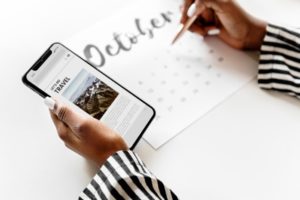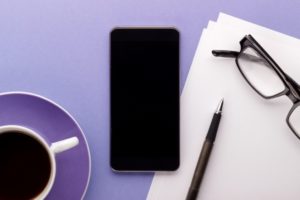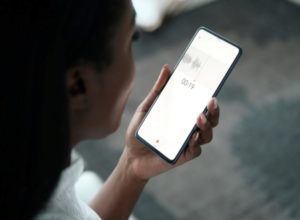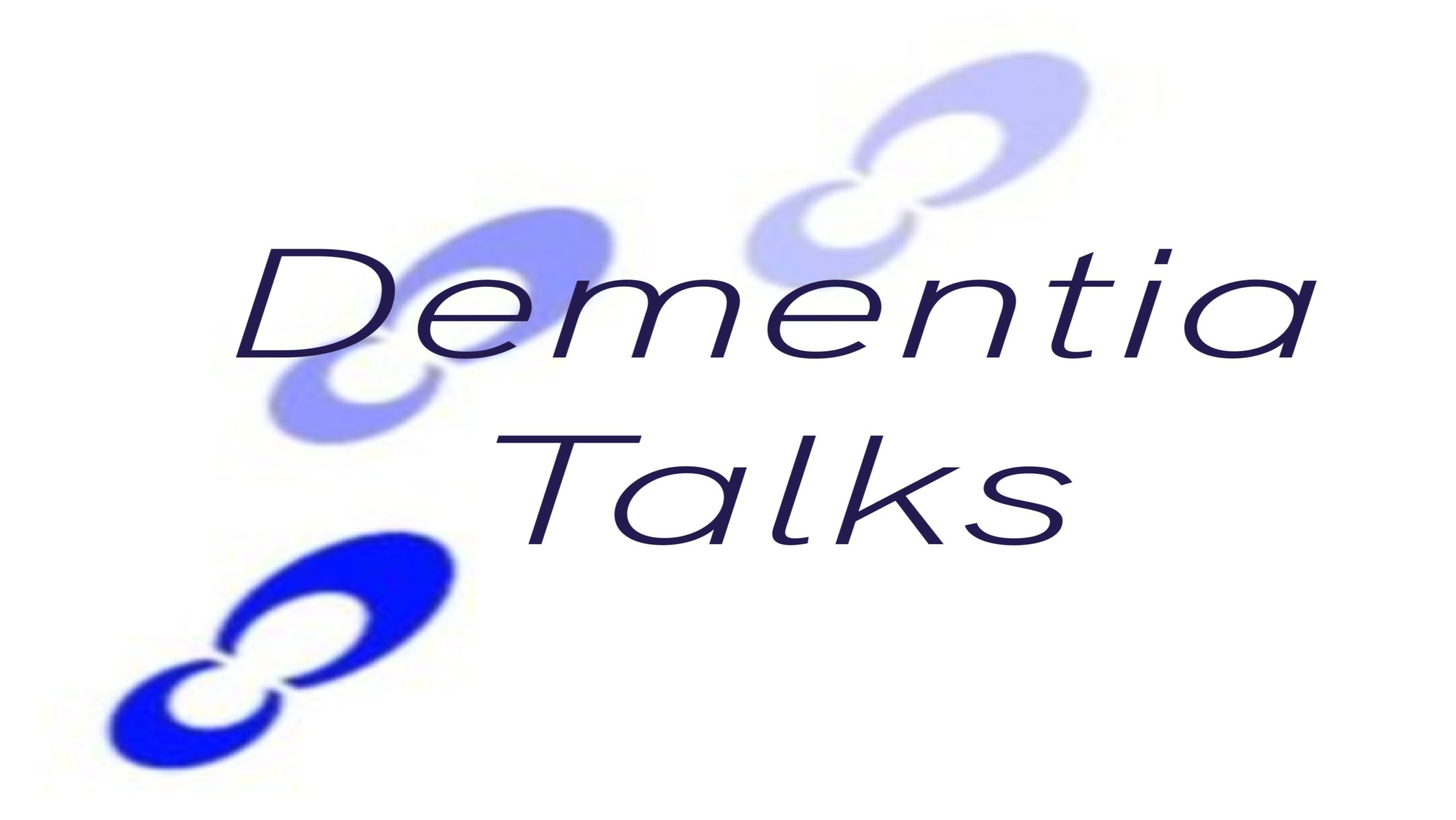YouTube Presentation on Coping Mechanism #2
The second most important Coping Mechanism that you can develop if you’re struggling with memory issues is using Calendar, Notes and Reminders.

Like the coping mechanism Simplification, coping mechanisms are best implemented as early as possible because we want to build Coping Mechanisms into good habits
You will remember from the last article, not all habits are bad, and we need to build good habits that can help you deal with memory issues as early as possible. We need habits, not just as workarounds for memory loss, but habits that minimize spending unnecessary Chits.
Today’s three Coping Mechanisms are:
1 – Notes
2 – Reminders or to-do list
3 – Calendar entries
The one tool that we all can use to solve each one of these is… “the Smart Phone.

The Smart Phone has become a common tool, but if you find that the smart phone is too hard for you, everything I am going to cover can be done with a good old pencil and small notepad and a shared calendar.
I know this is a tough area to address because technology can be challenging when you have memory issues. Also, simplicity would reinforce that a habit needs to be easy to do, and one which lays a foundation for a good habit. Remember, it is good habits that will help you through memory problem even when your dementia is causing declining memory capabilities.

If technology is just too challenging and you are used to using the common pencil and paper, fine but the focus this chapter will be on the power of using a smartphone.
I know many people are saying how can I use a smart phone if I have memory issues? Believe me, I am the last one that wants to introduce you to more challenges than you can handle. But if you are still comfortable with how to use the basic tools on a smart phone than this discussion is going to be very important to you.
First things first, what you need to remember is that you’re not alone in this need. There have been some great strides in the use these tools on smart phones and smart speakers.
Smartphones are in fact very powerful small computers and Smart Speakers let you verbally tap into major computing power.

With the smart phone you carry in your pocket or purse you can keep a calendar current; you can create a to do list; or reminders; and more importantly you can create notes to yourself with great ease.
The central purpose behind all three things is that by recording information on them you do not have to use up memory Chits to remember them in your short-term memory.
Also remember in the last episode we talked about the process of recall. Using short term memory storage can be a significant challenge. Then there is also the matter of moving short-term memory to long-term memory over night as you sleep. With dementia, that process breaks down right at the very beginning.

What we want is a way for you to recall information without using your memory and to make it easy for loved one or caregiver to share them as well. This is where the smart phone matched with a smart speaker fits right in.
If you are using an iPhone, then what I am about to tell you directly relates to it. But, if you’re using an Android I know they are compatible, but it is not my strong point, but I will do my best to point you in the right direction with each one.
So, let’s get started. First off, with an iPhone you can share a calendar with anyone in your “Family Sharing” group that same calendar can be shared with your smart speaker aka Alexa.
Below are three links to help you.
Instructions for Sharing Calendar, Notes and Reminders on iPhone
How to set up Phone Calendars on Alexa
How to share calendar entry on iPhones
Next, you and your caregiver’s phone can share Notes and Reminders or to-do’s, you can also share with another person in your “family group members” of your iCloud group.
You can create Notes that you and people in your family will be able to see. This ability to share Notes is done on an Android phone as well using Google Keep.
Here is where we will introduce an additional technology that has become very helpful as part of this coping mechanism. With Alexa and Google Nest you can use voice commands on these smart speakers to make or hear calendar entries, reminders, shopping list and of course play music and answer questions.
Using Smart Speakers with and iPhone

The next way to make it easier to use your smart phone as a Coping Mechanism is simply use your voice.
Most text can be created by a voice command without typing. There are easy voice commands that allow you to create a reminder or even create a basic calendar entry.
Last, for an iPhone the easiest way to create a note or any other information is to simply say “Hey Siri” and then you can tell Siri to “create a calendar entry for dinner tomorrow at 5 o’clock”, she will respond with an appropriate calendar entry.
Below are two links to help you:
How to Use Voice Command with and iPhone
How to Use Voice Commands with an Android

You can do the same thing by saying “hey Siri please create a Reminder; or a note entry; and tell her what you want it to say Like… Remind me to look for the White Album at home tomorrow.”
Of Course, these are simple examples, but I hope you get the idea that you can quickly create notes, reminders, and calendar entries, etc. The same can be done on an Android with Google Calendar and Google Keep.
Finally, there is a one more alternative, and it involves having a text sent to you about something you want to remember. Just say “Hey Siri send me a text to look for the White Album by the Beatles album at home.” Siri will gladly do that for you. With Siri you can send yourself a text of almost any duration for whatever you want. Just remember that the text is obviously only as good as your dictation, but you can get better at this over time.

So now, we have covered three plus ways to capture information easily. This is one of the most important things that people with a memory challenges face. Addressing the lack of continuity of short-term memory as well as the ability to cache short-term memory into long-term memory is what matters.
Normally your brain works as we sleep to move short term to long term but off-loading this function reduces this need and allows your brain to deal with other items.
Below are some links on YouTube on “how to’s” for each of these things i.e., how to set up shared calendars and other technical stuff.
Below are two links to help you:
Using Voice Command in iPhone
Using Voicer Command with an Android Phone
Disclaimer: The ability to make these items into a good habit are best formed in the early stages of dementia. Once you enter later stages of dementia the ability to learn these tools constructively and make them into a good habit diminishes greatly.
This is but one more example as to why there is great need for early diagnosis when you have memory issues.
If you have comments or you like to email me, I can be reached at Ted@dementiatalks.net or put a comment on Dementia Talks.net or you can leave a comment on our YouTube channel or Podcast. Please fill free to contact me.
I hope this inspires you to think about some of the tools that can spare short-term memory while still capturing information that you don’t want to lose.
Since smartphone technology is common and sharing information with your caregiver is automatic is why I think it is appropriate to rank these tools the second most important Coping Mechanism.
Last, May God bless you and keep you… “have a great, positive day”
copyright 2022




No Comments